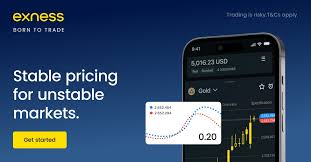
Leverage is a crucial component in the forex trading world, allowing traders to control larger positions than their actual capital. In recent times, the exness leverage change Exness trading platform has made significant changes to its leverage options, which can impact various trading strategies. This article aims to explore the nature of these changes, their implications, and how traders can effectively adapt to them.
What is Leverage in Forex Trading?
Leverage in forex trading refers to the ability to control a larger position in the market with a smaller amount of capital. This is achieved by borrowing funds from the broker, allowing traders to amplify their potential profits. However, it also increases the risk of significant losses, which is why understanding leverage is fundamental for every trader.
How Leverage Works
In practical terms, if a trader has a leverage of 1:100, they can control a position worth $10,000 with just $100 in their account. This dynamic can lead to higher returns; nevertheless, it equally exposes traders to greater risks. Small fluctuations in the market can have an outsized impact on the trader’s capital.
Recent Changes in Exness Leverage
In recent months, Exness has announced some changes to its leverage structure. These adjustments are designed to enhance the trading experience while ensuring that risk management is prioritized. For new traders, this could entail lower starting leverage levels, compelling them to adopt more conservative trading strategies, while more experienced traders might find themselves navigating differing parameters.
Reasons for Leverage Modification
The reduction of leverage is not uncommon in the trading industry. Regulatory bodies in various jurisdictions push for stricter risk management practices to protect traders from excessive risks. Exness aims to comply with these regulations while ensuring they remain competitive within the market.
Impact on Trading Strategies
The changes in leverage can have profound implications for various trading strategies. It is essential for traders to understand how these modifications may affect their approach.
Scalping Strategies
Scalpers, who thrive on making small profits from numerous trades throughout the day, might find the changes challenging. Lower leverage can result in reduced position sizes, which can limit profit potential from each trade. Thus, scalpers may need to reassess their strategies or increase their capital to maintain their desired trading volume.

Swing Trading Tactics
Swing traders, who typically hold positions for several days to capture market movements, may find the new leverage settings more manageable. Since swing trading involves fewer transactions, a lower leverage ratio might align better with their risk management strategies.
Long-term Investing
For long-term investors, leverage has less immediate impact. However, it is crucial to understand that significant fluctuations could affect margin requirements and overall account management. Investors may need to adjust their funding strategies accordingly.
Adapting to the New Leverage Landscape
With the changes in leverage, traders should consider several strategies to adapt effectively:
1. Reassess Your Risk Management Plan
Prior to making any trades, it is crucial to revisit your risk management plan. Consider your risk tolerance and position sizes in light of the new leverage settings. Ensure that your plan remains robust to safeguard against potential losses.
2. Adjust Your Trading Style
Some traders may benefit from adopting a different trading style that aligns with the new leverage options. If scalping becomes untenable, consider longer-term strategies that may be more suited to your new capital allocation.
3. Stay Informed
Market conditions and regulations can change rapidly. Staying informed about potential modifications to Exness leverage and other trading tools can help you make timely adjustments to your strategy.
Conclusion
Changes in leverage on the Exness platform represent a significant adjustment for many traders. Understanding the implications of these changes and actively adapting your trading strategies is critical to thriving in the evolving forex market. By reassessing risk management, modifying trading styles, and maintaining an informed perspective, traders can navigate the complexities of the new environment with greater success.

Comment (0)